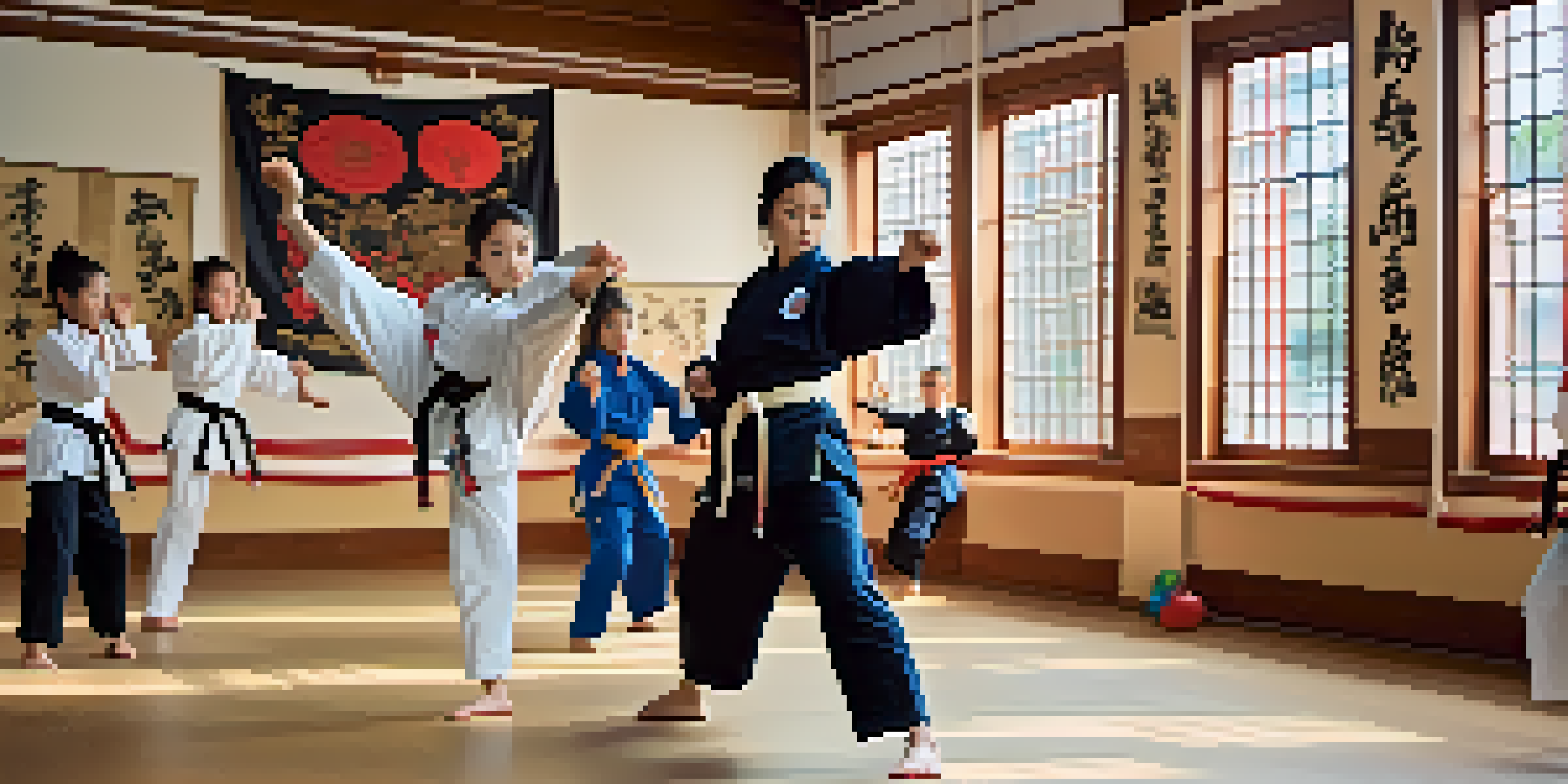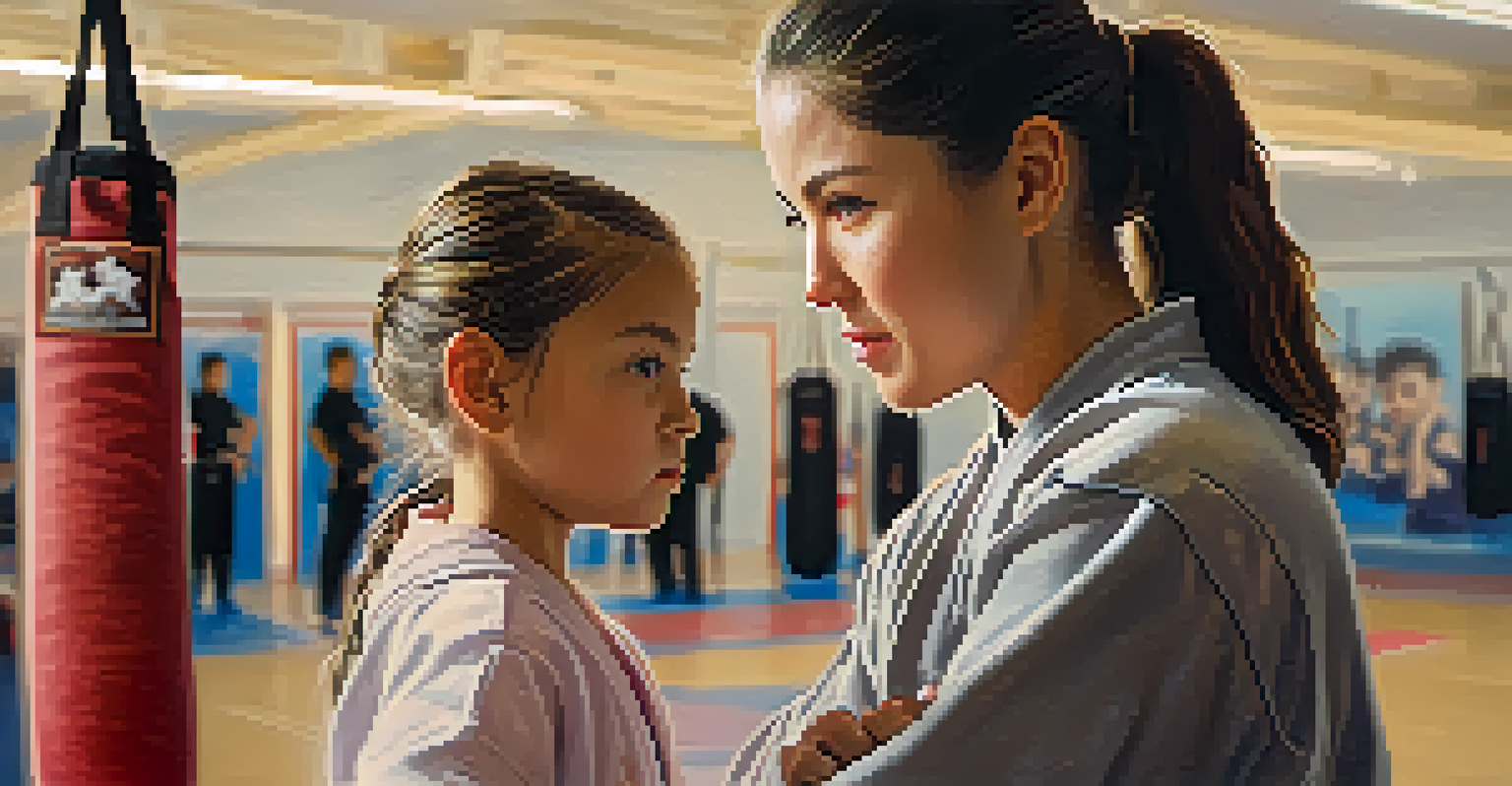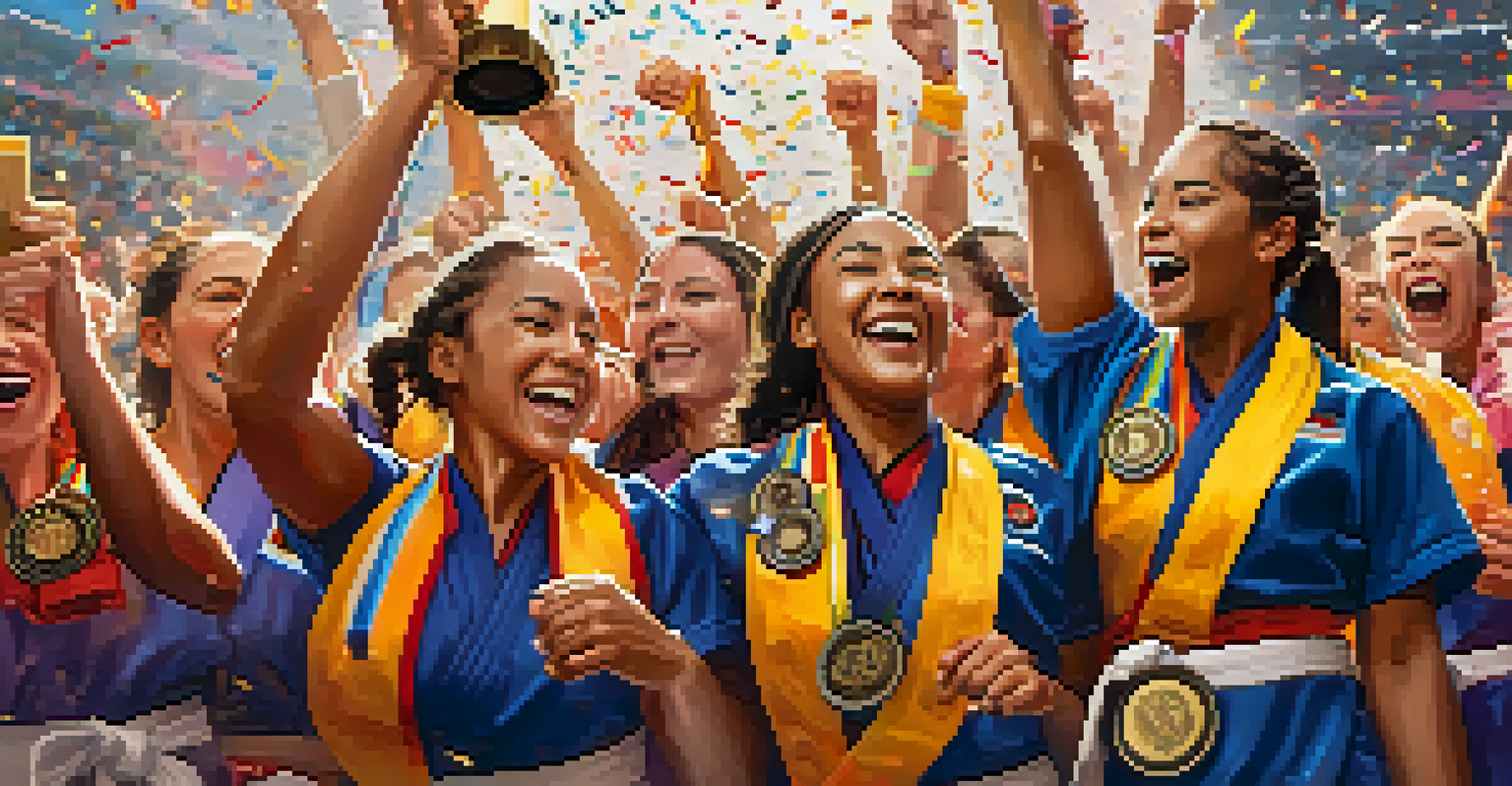The Rise of Female Coaches in Martial Arts

The Historical Context of Women in Martial Arts
Historically, martial arts have been male-dominated, with few women in prominent roles. Yet, women have always participated, often in the shadows, working hard to prove their skills and dedication. Over the years, cultural shifts have fostered an environment where female martial artists can thrive and take on leadership roles as coaches.
The most effective coaches are those who understand that their role is to inspire, to motivate, and to empower their athletes to be the best version of themselves.
As societal norms evolve, the landscape of martial arts is changing. Female athletes are now stepping into the spotlight, inspired by trailblazers who paved the way. This historical context highlights a significant shift, showing how women are no longer sidelined but are becoming influential figures in the sport.
The rise of female coaches can be seen as a reflection of a broader movement towards gender equality in sports. With more women in leadership positions, young girls are now growing up with role models they can look up to, inspiring a new generation to pursue martial arts.
Breaking Stereotypes: Female Coaches in Action
Female coaches are actively redefining what it means to lead in martial arts. They are not just teaching techniques; they are mentoring and empowering their students, fostering confidence and resilience. With their unique perspectives, these coaches bring a fresh approach to training, emphasizing mental strength alongside physical prowess.

Consider the story of a female coach who transformed her students' lives through martial arts. By focusing on self-defense and discipline, she not only taught skills but also instilled a sense of self-worth in her students. This approach illustrates how female coaches can challenge stereotypes and create a supportive environment.
Women Leading in Martial Arts
Female martial artists are breaking barriers and taking on influential roles as coaches, inspiring a new generation.
Moreover, the presence of female coaches encourages more women and girls to join martial arts schools. When they see someone who looks like them in a position of authority, it boosts their confidence and interest in the sport, contributing to a more inclusive martial arts community.
The Impact of Female Coaches on Performance
Research suggests that diverse coaching staff can enhance the performance of athletes. Female coaches often bring different coaching styles that may resonate more with female students. This tailored approach can lead to improved performance, as athletes feel understood and supported by someone who shares similar experiences.
Women can do anything men can do, and often do it better. Our presence in sports is a testament to that.
For instance, a young female athlete may respond better to a coach who emphasizes collaboration and communication. This nurturing environment can lead to greater motivation and improved skills, showcasing how female coaches contribute to the overall success of their teams.
Ultimately, the impact of female coaches on performance extends beyond just winning medals. It fosters a sense of belonging and community, encouraging athletes to strive for their personal best while feeling supported in their journey.
Mentorship and Development: A Unique Approach
Female coaches often prioritize mentorship, making it a central aspect of their coaching philosophy. They understand that building relationships with their athletes is key to fostering growth and development. This nurturing approach allows them to address individual needs, helping athletes develop both their skills and confidence.
Take the example of a female coach who dedicates time to one-on-one sessions with her athletes. By providing personalized feedback and encouragement, she helps them overcome challenges and achieve their goals. This investment in individual development is what sets female coaches apart.
Mentorship is Key to Success
Female coaches prioritize mentorship, fostering growth and confidence among their athletes through personalized support.
Moreover, this mentorship extends beyond the dojo. Many female coaches encourage their athletes to pursue education and personal development, emphasizing the importance of becoming well-rounded individuals. This holistic approach benefits athletes in all areas of life, not just martial arts.
Challenges Faced by Female Coaches
Despite the rise of female coaches, challenges still exist. Many face skepticism from peers and students who may not take them seriously due to ingrained biases. This can lead to a struggle for respect and recognition in a traditionally male-dominated field.
Additionally, female coaches often juggle multiple roles, balancing their coaching responsibilities with personal and professional commitments. This multitasking can be overwhelming, yet many women persevere, driven by their passion for martial arts and their desire to make a difference.
However, these challenges can also serve as catalysts for change. As female coaches continue to break barriers, they inspire others to follow suit, creating a ripple effect that promotes inclusivity and diversity in martial arts.
Success Stories: Inspiring Female Coaches
Across the globe, numerous female coaches are making their mark in martial arts. Their stories of success serve as inspiration for aspiring coaches and athletes alike. From leading championship teams to developing innovative training programs, these women are proving their worth and changing the narrative.
For example, a female coach who started her own martial arts academy has empowered countless girls to take up the sport. Through her leadership, she’s created a safe space where young women can learn self-defense and gain confidence. Her journey underscores the impact of female coaches in their communities.
Challenges Fuel Change
Despite facing skepticism and juggling multiple roles, female coaches are creating a ripple effect that promotes inclusivity in martial arts.
These success stories highlight not just individual achievements but also the collective progress of women in martial arts. Each story adds to the growing narrative of empowerment, showing that when women support each other, everyone benefits.
The Future of Female Coaching in Martial Arts
Looking ahead, the future of female coaching in martial arts appears promising. As more women enter coaching roles, we can expect to see a continued shift in the culture of martial arts. This change will likely create more opportunities for collaboration, innovation, and growth within the sport.
Moreover, organizations are beginning to recognize the importance of diversity in coaching. Initiatives aimed at supporting female coaches are emerging, providing resources and mentorship to help them thrive. This support will be crucial in nurturing the next generation of female leaders in martial arts.

Ultimately, the rise of female coaches not only enriches martial arts but also contributes to a more equitable sports landscape. With a foundation of support and encouragement, the future looks bright for women in martial arts coaching.